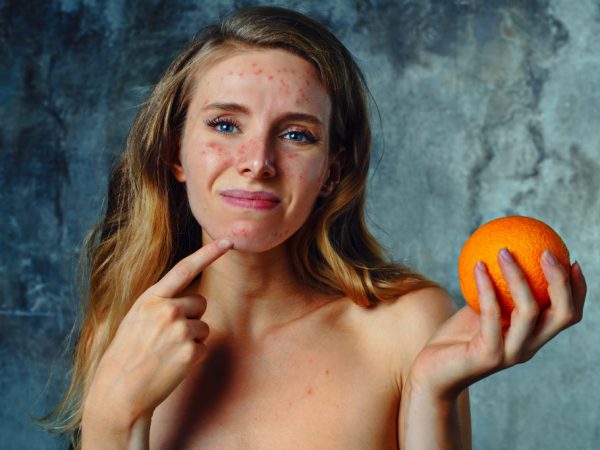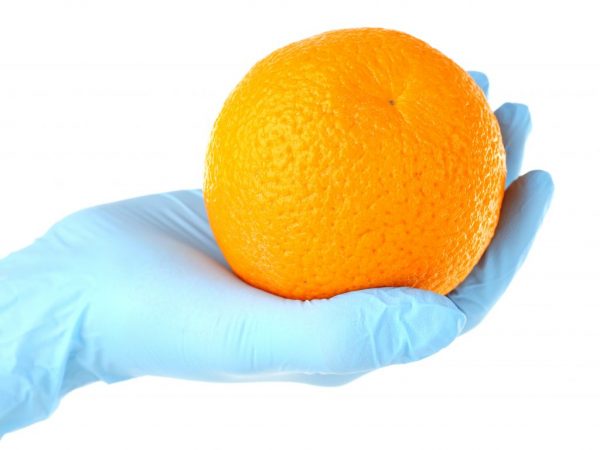Symptoms and treatment of orange allergy
A food allergy is a hypersensitive reaction of the immune system that identifies certain safe food components as hostile. Many people are allergic to oranges.

Symptoms and treatment of orange allergy
Types of food allergies
True allergy
Symptoms of a true allergy appear in early childhood and accompany a person throughout his life.
The mechanism is explained by the formation of class E immunoglobulin, which provokes the production of histamine by interacting with mast cell receptors. Histamine disrupts the tone of blood vessels, increases the permeability of their walls, constantly affects the nerve endings. All these processes are capable of causing a defense reaction almost instantly.
An allergen can enter the body in a minimal amount for a negative reaction to occur.
Pseudoallergy
This type of allergy occurs at any age. In adults, the disease is associated with disorders of the gastrointestinal tract.
The mechanism differs in that histamine is produced regardless of the response of the immune system. Citrus really affects the appearance of histamine in the body, but it is only a side factor. In this case, the reaction of the body depends on the amount of oranges consumed.
Causes of allergies
An important factor that provokes the occurrence of allergic reactions to citrus fruits is the presence of the same disease in the child's parents.
Causes of an allergic reaction to oranges in adults and children:
- Complex and unfavorable ecological environment in which a person lives. Weakened immunity often manifests itself as an allergic reaction to the product.
- The presence of autoimmune disorders, pathologies of the cardiovascular system, digestive and liver problems also weaken the body's defenses. Keeping the body in balance requires a lot of energy. If external allergens appear, the immune system will respond appropriately.
- If a child tries citrus before 3 years old, this may serve as the appearance of allergies in the future.
- Use during pregnancy or lactation provokes severe allergic reactions. Therefore, it is important for women in the sensitive period of the child to adhere to a special diet that excludes Chinese lemon, tangerine and other citrus fruits or limits their consumption.
- Also, the occurrence of allergies is influenced by changes in hormonal levels that occur at different periods of a person's life. The presence of internal parasites contributes to the emergence of protective reactions of the body. The classic consequences are allergy symptoms with severe stress, eating a lot of oranges at a time.
Oranges are almost always processed with specific agents to maintain their appearance and integrity during transit. Often it is these substances that cause allergies, and not the fruits themselves.
Symptoms of the disease

The first sign of an allergy is skin redness.
An allergy to oranges is difficult to distinguish from the manifestations of the body's rejection of another food product. The body's defense reaction is triggered at any age under the confluence of certain circumstances. Symptoms also range in severity from mild, subtle symptoms to severe, life-threatening symptoms. Signs of orange allergy in both adults and children often overlap with symptoms of other illnesses.
Physical manifestations in adults
With allergies, the skin begins to change - irritations appear on different parts of the skin.
Mild - rash or hives on the face, neck, arms, legs, back, groin and axillary areas. There is reddening of the skin, dryness, severe peeling, itching, inflammation.
In severe cases, Quincke's edema occurs, when the neck and face increase in size, the airways are pinched, the patient becomes difficult to breathe. Critical cases of fruit intolerance are accompanied by oral allergies - the mucous membranes of the eyes, nose, mouth swell.
- Disorders associated with the digestive system may not seem dangerous, but lead to dehydration if the disease is ignored. Signs of the body's reaction to allergens are abdominal pain, bloating, nausea, and diarrhea. Hypersensitivity of the immune system leads to severe vomiting, frequent loose stools with bloody and mucous inclusions, and general inflammation of the intestines.
- Cardiovascular disorders cause allergens to enter the body. These include a sharp drop in blood pressure, dizziness, blurred consciousness, increased heart rate, chills and increased sweating, tremors of the arms and legs. In more severe cases, anaphylactic shock occurs - a sharp drop in blood pressure, loss of consciousness and difficulty breathing.
- Respiratory problems occur in the upper or lower section. In mild cases, the main blow falls on the nasopharynx - a sore throat occurs, the palate and tongue swell and become inflamed, and difficulty breathing appears. In severe cases, the larynx and bronchi swell, which leads to anaphylaxis, suffocation, oxygen starvation.
- Inflammatory processes of the mucous membrane of the eyes, manifest themselves as reddening of blood vessels, the release of tears or acute dryness of the eye. As a consequence of such a disease, conjunctivitis occurs, which covers both eyelids. All processes are accompanied by severe itching.
Symptoms in children
Due to the high level of sensitivity of the child's immune system and digestive tract, manifestations of allergy to oranges can be pronounced. The risk group includes children aged 2 to 7 years. For them, signs of an allergic reaction of the body are called:
- dermatitis and urticaria, accompanied by redness and itching, which quickly cover large areas of the skin;
- tearfulness and swelling of the mucous membranes of the eyes;
- bowel disorders with diarrhea;
- profuse nasal discharge, sneezing, or nasal congestion;
- drowsiness, lethargy, general fatigue;
- frequent urination and bowel movements;
- severe belching and flatulence;
- Quincke's edema, bronchospasm and asthmatic attacks in severe cases.
Orange allergy treatment

Allergies are hazardous to health
Self-medication without consulting an allergist is dangerous to health and can be fatal. The process of diagnosing allergies includes interviewing and examining the patient, analyzing the diet, blood tests for the detection of appropriate antibodies to the allergen, and skin tests.
Medical treatments
Pharmacological drugs are prescribed by a doctor with a prescription.These include drugs based on cromoglycic acid - they are considered less effective, but differ in the absence of side reactions.
Modern drugs use antihistamines that relieve allergies within 2-3 months. Strong side-effect drugs are glucocorticosteroids, which are allowed for no longer than 5 days. Sorbents are used to remove allergens with skin rashes.
The longest and most effective method of treatment is specific immunotherapy. The patient is regularly injected in small doses with an allergen. This action activates the production of antibodies, which ultimately blocks the allergen, no matter how much it enters the body. The procedure lasts for years, but the result is worth it - the allergy no longer bothers a person for the rest of his life.
Traditional methods of treatment
Traditional medicine is not the main way to get rid of allergies. It is used as an adjunct treatment after consulting a doctor. Allergy prescriptions include:
- herbal preparations (wormwood, hops, duckweed, birch buds, St. John's wort, oregano), which are the basis of decoctions;
- beekeeping products (propolis, honey, bee bread, pollen), if no allergy to these components is found;
- peppermint (1 tablespoon of mint per 100 ml of boiling water) is the basis of the infusion, which is taken 1 spoon 3 times a day;
- nettle (1 tablespoon dry leaves per 200 ml of boiling water) is also used to make an infusion for rashes, eczema, urticaria, which is taken in 100 ml 3-5 times a day.
Conclusion
Only a doctor can determine an allergic reaction to oranges in adults and children. For the treatment of allergies, medications will be prescribed, and the patient will be advised to adhere to the correct diet and attend physiotherapy procedures.


